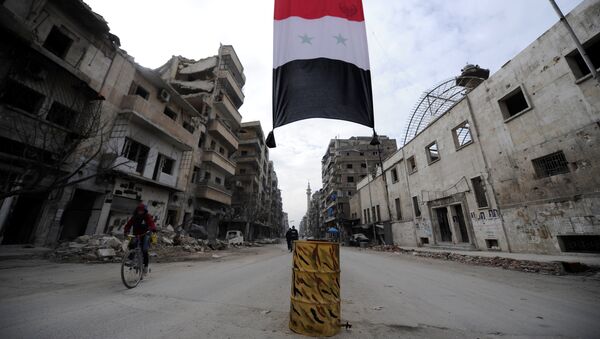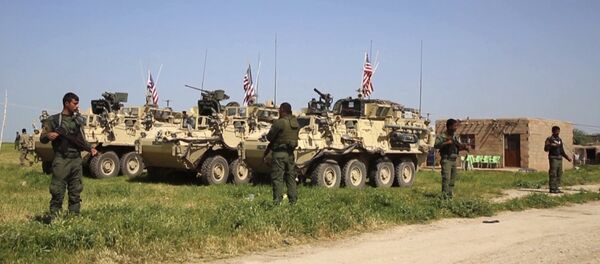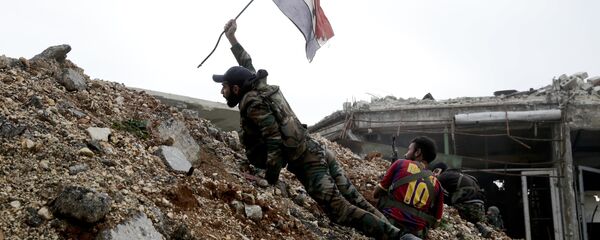The civil war in Syria has lasted for around six years with government troops fighting numerous opposition factions and terror organizations such as al-Nusra Front and Daesh, outlawed in Russia.
The nationwide Syrian ceasefire regime was introduced on December 30, 2016. Terrorist organizations are not part of the ceasefire.
"Regarding the possibility of Moscow and Washington developing cooperation in a certain area, they can work together on Syria. Finding any solution to the Syrian crisis will be out of the question if Russia and the United States do not cooperate," Kuznick said.
He said in this vein that unlike the United States, Russia is showing a more flexible approach to dealing with the issue of the Syrian settlement.
"Russia is demonstrating a more flexible approach [on the issue] than the United States. Moscow is working with those international players who have weight in the region, including Turkey and Iran," he said.
Kuznick emphasized that "the Russian side is taking quite a lot of positive steps towards the Syrian settlement, including the recent meeting in Astana."
Separately, he added that the two countries need to work together so as to tackle combat terrorism, climate change and nuclear weapons.
"This is madness, but we still have weapons aimed at each other. We must stop this immediately," he pointed out.
The city of Astana has already held four rounds of negotiations between the Syrian government and armed opposition in order to settle the conflict in the Middle Eastern country. The most recent round took place on May 3-4.
The May round of the Astana talks resulted in a memorandum signed by the Syrian ceasefire guarantor states (Russia, Iran, Turkey) aimed at creating four zones of de-escalation in Syria, which include the province of Idlib and seven other regions.
Last week, Russian Foreign Minister Sergei Lavrov said that Washington has welcomed the memorandum on creating four safe zones in Syria.
The United States itself has proposed to stop violence in the areas hit by the most severe clashes between the [Syrian] government and [the country's] armed opposition in order to create conditions for the safety of civilians. And it is not a coincidence that the United States has welcomed the result of the Astana meeting — an agreement to create de-escalation zones," Lavrov said.
Never miss a story again — sign up to our Telegram channel and we'll keep you up to speed!





